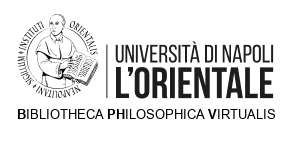Epistolario / Baruch Spinoza, a cura di Antonio Druetto, Einaudi, Torino 1974
La raccolta di ottantaquattro lettere che Spinoza scambiò con gli amici, gli estimatori e gli intellettuali della sua epoca rappresenta una testimonianza importante della vivacità cultutale presente in Europa nella seconda metà del 1600.
In una delle epistole, il filosofo espone uno dei capisaldi del suo pensiero: Dio è causa immanente di tutte le cose, così che nella creazione si annulla la distinzione tra causa ed effetto.
La seguente traduzione dell'epistolario spinoziano, curata brillantemente da Antonio Druetto, non tralascia le parti concernenti la fisica, l'ottica e ogni altra informazione scientifica che emerge dal carteggio erudito.
------
The collection of eighty-four letters that Spinoza exchanged with friends, estimators and intellectuals of his time is an important attestation of the cultural liveliness in Europe in the second half of the seventeenth century.
In one of the letters, the philosopher exposes one of the cornerstones of his thought: God is the immanent cause of all things, so that in the creation the distinction between cause and effect is cancelled.
The following translation of the correspondence of Spinoza, edited brilliantly by Antonio Druetto, doesn't leave out the parts concerning physics, optics and any other scientific information that emerges from the learned letters.
Baruch Spinoza
Baruch Spinoza (Amsterdam 1632 - L'Aia 1677) è stato un pensatore eclettico che, procedendo dalla questione del rapporto tra pensiero ed estensione, è giunto alla conclusione della fallacità del dualismo cartesiano, negando inoltre la provvidenza divina e l'etica del sacrificio.
Il filosofo olandese affermava dunque l'unicità, l'infinità e l'indivisibilità della sostanza: essa coincide con Dio, esiste di per sé ed è "causa sui", cioè la sua essenza implica necessariamente la sua esistenza.
La celebre definizione "Deus sive Natura" ha origine dal presupposto che la natura naturante costituisce l'insieme degli attributi che esprimono la sostanza infinita (Dio come causa libera), e la natura naturata è la totalità dei modi degli attributi divini (Dio come causa necessaria).
In questo contesto l'uomo è parte della natura e può rivendicare il diritto a perseguire la sua "utilitas".
------
Baruch Spinoza (Amsterdam 1632 - The Hague 1677) was an eclectic thinker who, proceeding from the question of the relationship between thought and extension, concluded the fallacy of Cartesian dualism, also denying the divine providence and the ethic of sacrifice.
The Dutch philosopher therefore claimed the uniqueness, the infinity and indivisibility of the substance: it coincides with God, exists by itself and is "causa sui". In other words, its essence necessarily involves existence.
The famous definition "Deus sive Natura" arises from the assumption that nature naturante is the set of attributes expressing the infinite substance (God as the free cause), and the nature naturata is the totality of the ways of divine attributes (God as the necessary cause).
In this context, the man is part of nature and can assert the right to pursue its "utilitas".
Shelfmark: F.L. 0056


